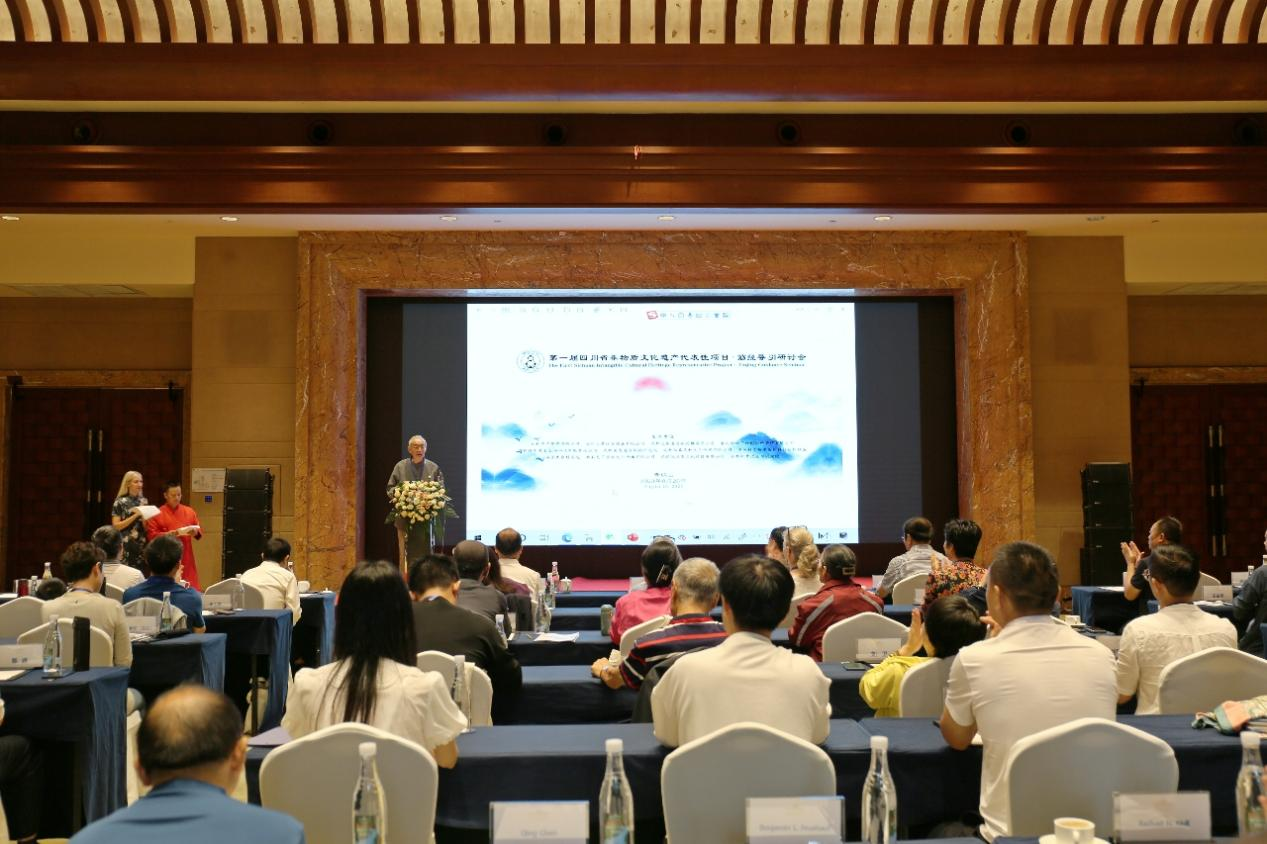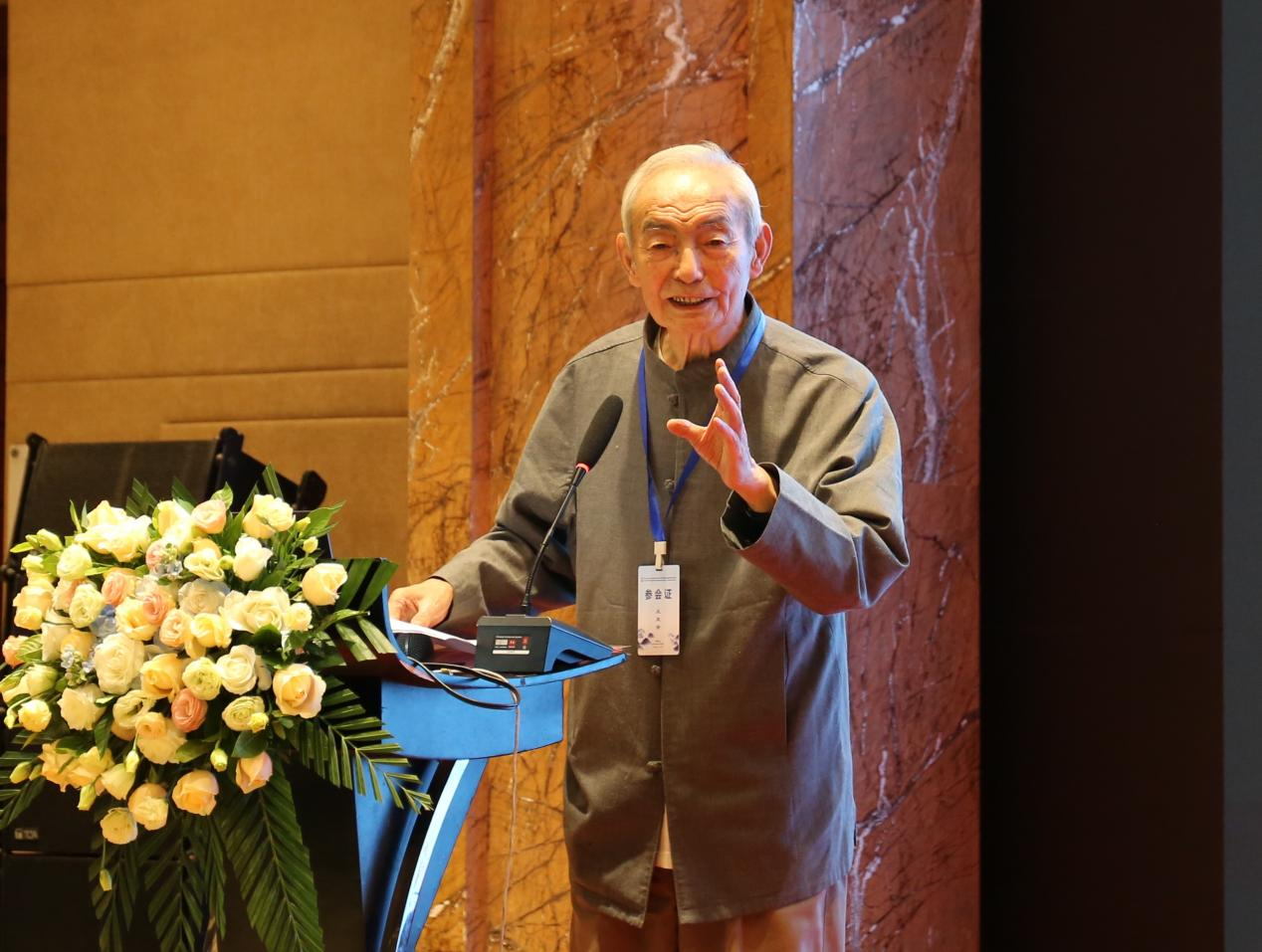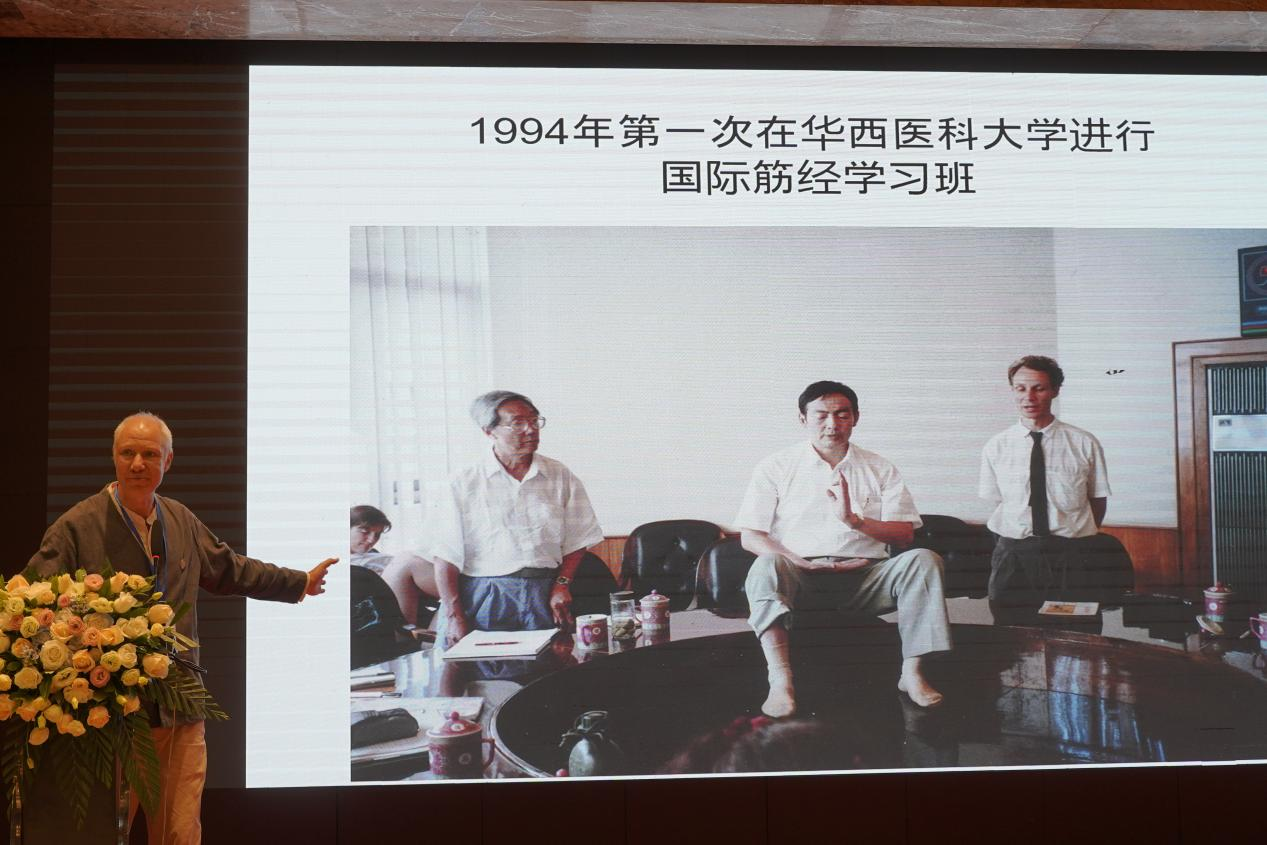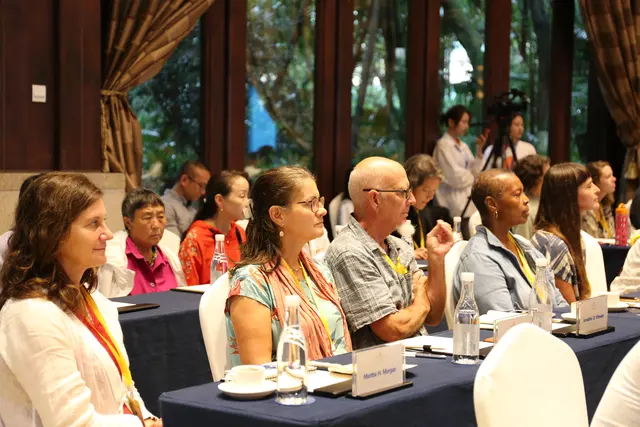The First Sichuan Intangible Cultural Heritage Representative Project Jinjing Daoyin Seminar was held on Aug 26 at the foot of Mount Qingcheng in Sichuan province.
Dozens of disciples of the Jinjing school and Jinjing Daoyin practitioners from home and abroad gathered to discuss the preservation, promotion and future prospects of Jinjing Daoyin.

The First Sichuan Intangible Cultural Heritage Representative Project Jinjing Daoyin Seminar is held on Aug 26 at the foot of Mount Qingcheng in Sichuan province. [Photo provided to Asia Pacific Daily]
Jinjing Daoyin is a unique exercise that integrates traditional martial arts, Taoist internal cultivation and traditional Chinese medicine. It dates back to the late Qing Dynasty (1644-1911) and the early Republic of China (1912-1949), when Li Jie, an eminent Taoist priest whose Taoist monastic name is "Huanxi" (meaning "joy"), founded the Jinjing school.
In April, Jinjing Daoyin was included in the sixth batch of provincial intangible cultural heritage representative projects in Sichuan province.
Wang Qingyu, the second-generation lineage holder of Jinjing Daoyin, reviewed the course and achievements in theorizing and systemizing Jinjing Daoyin and widely spreading it throughout China and the world. He encouraged the disciples to practice Jinjing Daoyin exercises diligently and pass on the school's kungfu, culture and spirit.

Wang Qingyu, the second-generation lineage holder of Jinjing Daoyin, gives a speech at the First Sichuan Intangible Cultural Heritage Representative Project Jinjing Daoyin Seminar. [Photo provided to Asia Pacific Daily]
Wang said the Jinjing school will commit to compiling a curriculum system on Jinjing Daoyin, cultivating teachers, and carrying out a general health training program for the public. It also works to introduce Jinjing Daoyin in schools to help improve the physical and mental health of young people.
Yang Dianxing, vice president of the China Association of Chinese Medicine and president of the Sichuan Association of Chinese Medicine, emphasized the importance of the preservation, development and utilization of Jinjing Daoyin at the seminar. He said traditional Chinese medicine treats diseases in a natural way, and Jinjing Daoyin, an exercise that conforms to nature, can not only strengthen the body but also cure diseases.
Wang Chao, former president of the Sichuan Academy of Chinese Medicine Sciences, said Jinjing Daoyin helps improve health and prevent disease. He hoped this intangible cultural heritage representative project would be introduced at universities and produce more scientific research and academic achievements.
Zhou Xiangsheng, an official at the Sichuan Intangible Cultural Heritage Protection Center, read out the notice of the Sichuan provincial government on announcing the sixth batch of provincial intangible cultural heritage representative projects.
Zhang Lei, chief of the science, technology and industry division of the Sichuan Academy of Chinese Medicine Sciences, said the Sichuan Academy of Chinese Medicine Sciences will do its best to ensure the preservation of Jinjing Daoyin.
To fully study the internal relationship between Jinjing Daoyin and traditional Chinese culture, as well as its role in the national health strategy, experts who are also practitioners of Jinjing Daoyin were invited to the seminar to give special reports on Jinjing Daoyin and Taoist thought, Jinjing Daoyin and I Ching, Jinjing Daoyin and therapeutic dietetics, and more.

Heiner Fruehauf, a disciple of the Jinjing school and founding professor of the College of Classical Chinese Medicine of National University of Natural Medicine, gives a report at the First Sichuan Intangible Cultural Heritage Representative Project Jinjing Daoyin Seminar. [Photo by Liao Fengling/For Asia Pacific Daily]
Heiner Fruehauf, a disciple of the Jinjing school and founding professor of the College of Classical Chinese Medicine of National University of Natural Medicine in Portland, Oregon, told the story of why he joined the Jinjing school and explained the spread of Jinjing Daoyin in the West over the past three decades.
"Were it not for Wang shifu (master) and Jinjing Daoyin, I, a former cancer patient, wouldn't be able to stand here now in good health," he said.
With the help of Wang, Fruehauf founded the College of Classical Chinese Medicine in 1994. The college offers 300 hours of traditional nourishing life exercises with a focus on Jinjing Daoyin. It has graduated more than 800 master's and doctoral students since 1995.
In addition, there are about 2,000 students outside the university trained by American Jinjing Daoyin disciples, and a total of 15,000 to 30,000 Western students and patients have been exposed to Jinjing nourishing life exercises, according to Fruehauf.
 简体中文
简体中文

